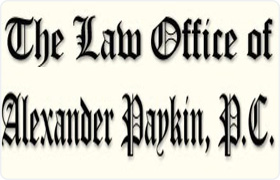Hicksville Eminent Domain Lawyer, New York
Sponsored Law Firm
-
 x
x

Click For More Info:
-
The Law Office of Alexander Paykin, P.C.
350 5Th Ave Fl 59 New York, NY 10118» view mapReal Estate Reliable. Dependable. Accessible.
Whether you are buying, selling, renting, or refinancing your house, our experienced legal team will strongly advocate for you at each and every step of the process.
800-747-9261
Robert T. Bloom
Tax, Commercial Real Estate, Eminent Domain
Status: In Good Standing *Status is reviewed annually. For latest information visit here
John Charles Bivona
Divorce & Family Law, Eminent Domain, Divorce
Status: In Good Standing *Status is reviewed annually. For latest information visit here Licensed: 59 Years
Matthew J. Cronin
Tax, Eminent Domain, Workers' Compensation
Status: In Good Standing *Status is reviewed annually. For latest information visit here Licensed: 75 Years
Arthur Kamer Feldman
Eminent Domain
Status: In Good Standing *Status is reviewed annually. For latest information visit here Licensed: 38 Years
Ryan C. Hild
Eminent Domain, International, Government, Tax
Status: In Good Standing *Status is reviewed annually. For latest information visit here
 Alexander Paykin New York, NY
Alexander Paykin New York, NY AboutThe Law Office of Alexander Paykin, P.C.
AboutThe Law Office of Alexander Paykin, P.C. Practice AreasSpecializations
Practice AreasSpecializations